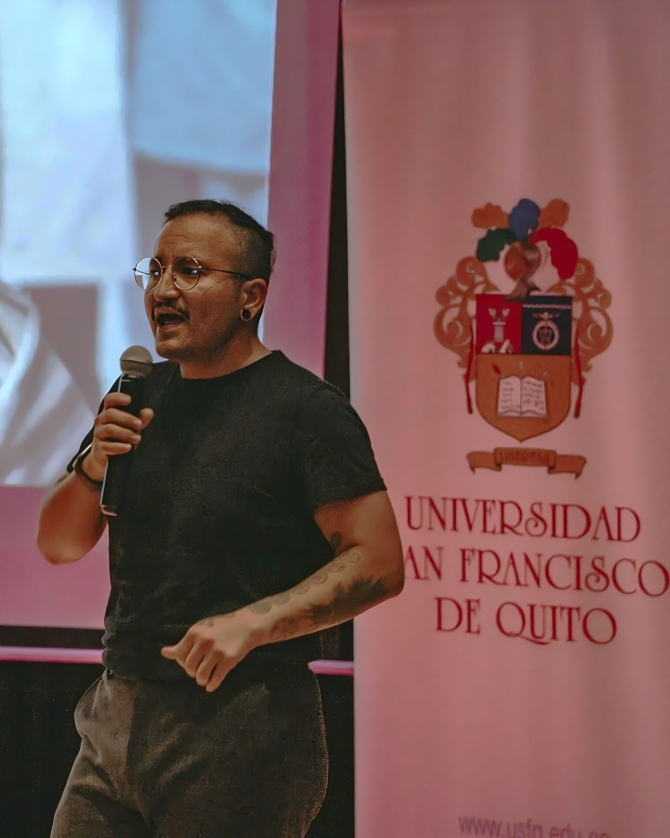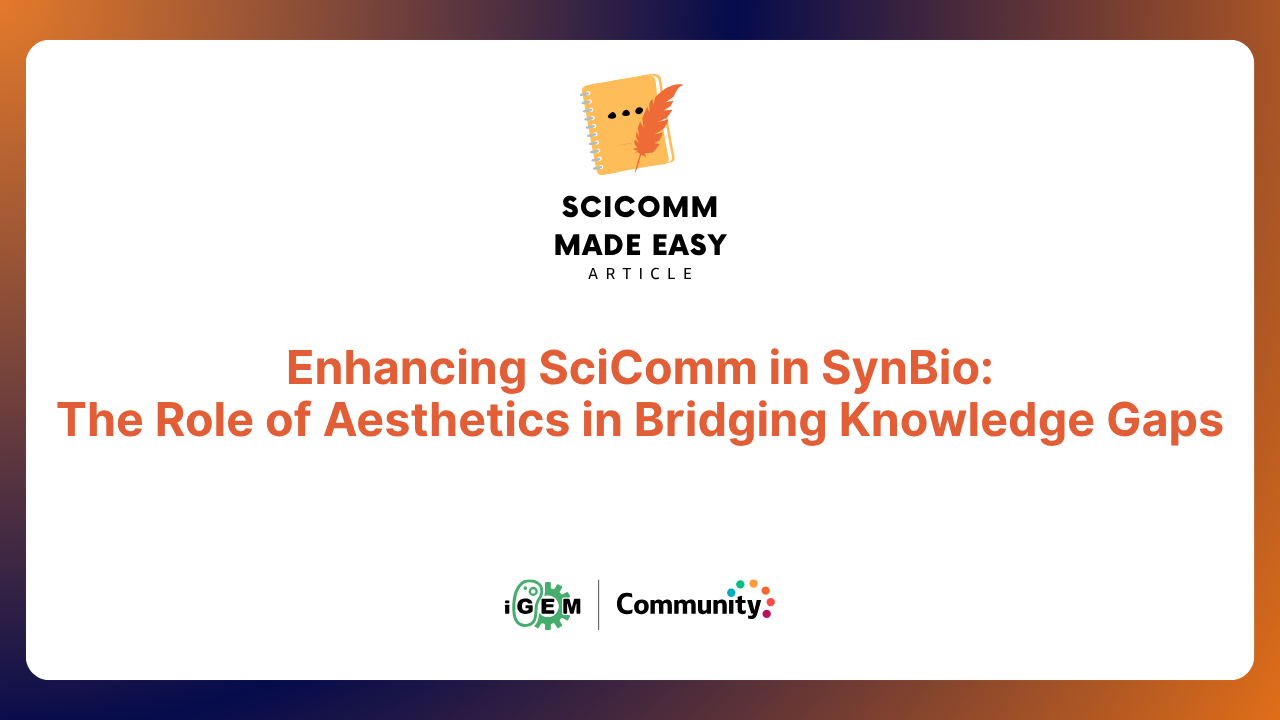Building an Ecosystem from the Ground Up: Benjamin Arias and the Ecuador’s SynBio Movement
Interviewed by Xavier Alexandro Ríos Salinas and Nathaly Romero (iGEM Ambassadors for Latin America)
Written by Hassnain Q Bokhari
In a lab nestled in Ecuador, amid the quiet hum of machines and the persistent resolve of young scientists, Benjamin Arias is working on something important: equity through synthetic biology.
Benjamin Arias giving a talk at the Universidad San Francisco de Quito
Arias’s journey began in Quito, Ecuador, where a simple bacterial transformation experiment during his undergrad years set a lifelong fascination in motion. "Seeing how genetic circuits could be designed and applied to real-world problems fascinated me," Benjamin relates. That early curiosity deepened when he worked with the Ecuadorian National Institute of Public Health during the COVID-19 pandemic, an experience that solidified his commitment to using molecular tools to solve urgent challenges.
But Arias is not just a scientist. He’s also a builder of tools, of networks, of opportunities and above all, of community.
"Innovation doesn’t always come from abundance. It often comes from constraint," he says. "Being Latin American in this field means bridging worlds; translating science into tools for communities that have long been excluded."
One of those communities lies high in the Andes, a mountain range which extends through seven South American countries: Argentina, Chile, Bolivia, Peru, Ecuador, Colombia and Venezuela. There, in the Ecuadorian region, Benjamin’s team is developing accessible genetic screening tools for PKU variants and portable diagnostic devices tailored to regions without consistent electricity or laboratory access. It’s grassroots biotechnology with global implications.
From a YouTube video to global impact
Arias first discovered iGEM through a video of engineered E. coli producing spider silk. "It blew my mind," he recalls. That moment changed his path. As a student, he volunteered in labs, mentored others, and helped local teams pursue research without the infrastructure common in the Global North.
Today, he’s working to change how synthetic biology education and access function in Latin America. One part of that effort is the MIT/Harvard course How to Grow (Almost) Anything (HTGAA).
Benjamin is the first Latin American TA of the HTGAA course, and the first to establish an official course node in the region. The Ecuador Node delivers local training and access to open-source automation tools like the Opentrons OT-2 robot. For many students, it’s their first experience with automated protocols. But more than the hardware, Benjamin sees the message these tools send: You belong here too. "It’s not just about having the tool, it’s about what that tool makes possible," that Benjamin finds to be most important.
Creating a space for local iGEM teams
For many iGEM teams in Latin America, access to lab infrastructure is still a barrier. That’s where Benjamin’s lab steps in, with a simple philosophy: Share what you have.
Benjamin Arias (left), supervising and mentoring a student at his lab.
The lab offers mentorship, equipment, reagents and guidance to teams that might not otherwise participate. Sometimes they help refine projects; other times, they co-design biosensors or assist with DNA parts. There are no strict requirements, only a focus on ethical research, open science, and mutual respect. "We aim to lower barriers, not raise them." Benjamin says.
Through six editions of a hands-on synthetic biology course co-hosted with Ecuador’s first community bio lab, BioHackUIO, they've trained students from across the region, including Peru.
His long-term vision is ambitious: A distributed network of community labs across Latin America, sharing protocols, mentorship and hardware; a decentralized infrastructure for a new kind of biotechnology, open, collaborative and deeply local, where future iGEMers can come in and build local solutions for local problems.
"SynBio should be as accessible as programming," he says. "And I want to build the tools to make that true."
Microbial BioArt designs on petri dishes produced in Arias’s lab (Synbiogenetics USFQ).
An Open Invitation for Future iGEMers
Benjamin believes the iGEM community has a role to play in this future. His message?
“Some of the most creative, determined and socially driven teams are in the Global South. Let’s connect, collaborate and build the future together!”
For teams looking for support, mentorship or a place to co-create, his lab is open. Reach out via his Instagram account (@the.scifientist). There are also community calls and office hours, because as he says:
"We’re building a hub, not a gate."
And to young synthetic biologists across Latin America, he offers this:
“Your background is not a limitation, it’s your superpower. Don’t wait for permission to build. Start now, with what you have, where you are. We’re here to help you shine brighter than any GFP (Green Fluorescent Protein)!”












